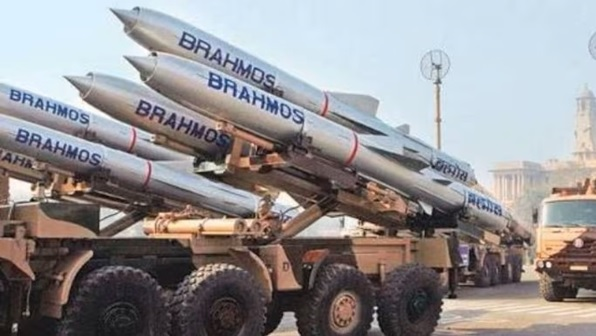Rajasthan
Rajasthan to Manufacture Rifles and Machine Guns
- 03 Jun 2025
- 5 min read
Why in News?
Under the ‘Make in India’ and ‘Rising Rajasthan’ initiatives, Rajasthan secured defence clearance for projects worth over Rs 1500 crore.
- It marks a significant milestone for the state’s defence manufacturing sector, positioning it as a key player in India’s defence production and exports.
Key Points
- Rajasthan’s Role in Defence Manufacturing:
- Gun parts will be manufactured in locations like Jodhpur and Jaipur, with barrels produced at a specialised facility in Boranada, Jodhpur—ensuring supply chain security through a decentralised, infrastructure-driven approach.
- A key challenge is meeting safety norms for ammunition storage, which requires facilities to be 8–10 km from inhabited areas; the government is being approached for suitable land allocation.
- Gun parts will be manufactured in locations like Jodhpur and Jaipur, with barrels produced at a specialised facility in Boranada, Jodhpur—ensuring supply chain security through a decentralised, infrastructure-driven approach.
- Advanced Weapon Systems Under Production:
- Military-Grade Sniper Rifle: Engineered for long-range precision with sub-minute of angle (MOA) accuracy up to 2.4 km, this fully indigenous weapon is built to perform reliably across diverse environments.
- Multi-Barrel Machine Gun: Boasting a firing rate of 6,000 rounds per minute and a 1,000-yard range, it can fire 15,000 rounds per belt, with future upgrades planned for C-RAM (Counter Rocket, Artillery, and Mortar) and anti-aircraft roles.
- Significance for India’s Defence Ecosystem:
- Alignment with ‘Make in India’: The initiative embodies India’s vision of self-reliance in defence manufacturing by producing fully indigenous, cutting-edge weapon systems.
- Decentralised and Robust Production: Multiple production hubs reduce risk, improve security, and leverage regional industrial infrastructure, contributing to resilience in the supply chain.
- Boost to Defence Start-ups: Involvement of defence startups in the project reflects the growing role of innovation and private sector participation in the defence sector.
- Export Potential: Early interest from countries such as Togo and Thailand indicates promising export opportunities, supporting India’s goal to become a global defence supplier.
- Complement to Existing Defence Production: Following Uttar Pradesh’s success with BrahMos missile production, Rajasthan’s entry into small arms manufacturing diversifies India’s defence production capabilities.
BrahMos Missile
- The BrahMos missile, which has a range of 290 km, is an Indo-Russian joint venture and is the world's fastest cruise missile with a top speed of Mach 2.8 (about three times the speed of sound).
- BrahMos is named after the Brahmaputra (India) and Moskva (Russia) rivers.
- It is a two-stage missile (solid propellant engine in the first stage and liquid ramjet in the second stage).
- It is a multiplatform missile i.e. it can be launched from land, air and sea and is a multi-capability missile with high accuracy which operates both during day and night irrespective of weather conditions .
- It operates on the "fire and forgets" principle i.e. it does not require guidance after launch.
- Vietnam, the United Arab Emirates and Indonesia are among other potential customers for the BrahMos missile.
‘Make in India’ Initiative
- About: The campaign was launched to facilitate investment, foster innovation, enhance skill development, protect intellectual property & build best-in-class manufacturing infrastructure.
- Objectives:
- Increase the growth rate of the manufacturing sector to 12-14% per annum.
- Create 100 million additional manufacturing jobs by 2022 (revised to 2025).
- Increase the manufacturing sector's contribution to GDP to 25% by 2025.
- Pillars of ‘Make in India’:
- New Processes: Recognized 'ease of doing business' as vital for entrepreneurship, implementing measures to improve the business environment for startups and established enterprises.
- New Infrastructure: The government prioritised developing industrial corridors and smart cities to create world-class infrastructure.
- It also enhanced innovation and research through streamlined registration systems and improved intellectual property rights (IPR) infrastructure.
- Make in India 2.0: The ongoing "Make in India 2.0" phase, encompassing 27 sectors, continues to propel the program forward, consolidating India’s role as a significant player in the global manufacturing arena.



.jpg)




